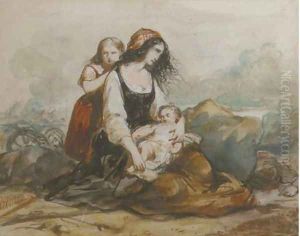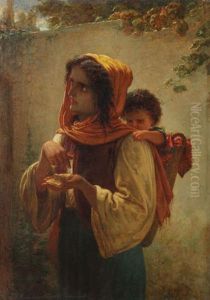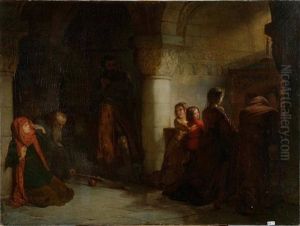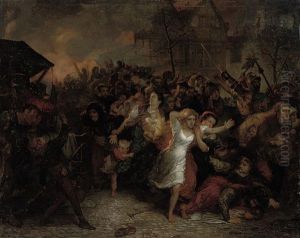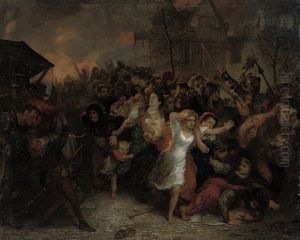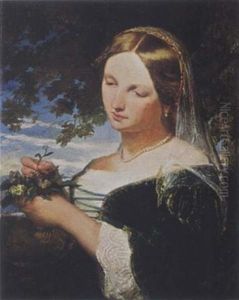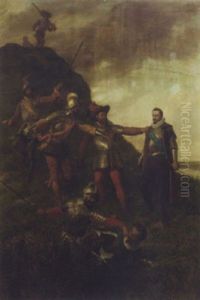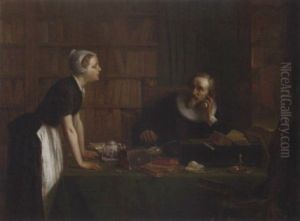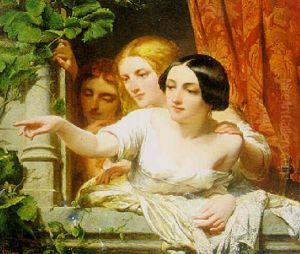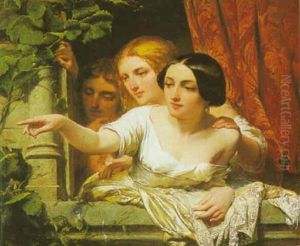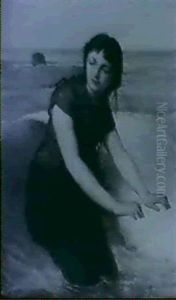Johann Bernhard Wittkamp Paintings
Johann Bernhard Wittkamp was a German artist born on July 6, 1816, in Münster, Westphalia. He was an accomplished painter and illustrator, whose work spanned several decades of the 19th century, reflecting the varied artistic movements of his time. Wittkamp's early life was steeped in the rich cultural and historical milieu of Münster, a city known for its deep artistic and ecclesiastical heritage. This environment undoubtedly influenced his artistic inclinations and pursuits.
Wittkamp's career was marked by a commitment to both religious and secular themes, demonstrating versatility and depth in his approach to art. He received his formal education at the Academy of Fine Arts in Düsseldorf, which was a leading institution for art education in Germany during that period. The Düsseldorf School, renowned for its emphasis on detailed historical and landscape painting, left a significant imprint on Wittkamp's artistic development. Under the tutelage of notable instructors, Wittkamp honed his skills, particularly in oil painting and illustration.
Throughout his career, Wittkamp exhibited a keen eye for detail and a profound ability to capture the essence of his subjects. His religious works often conveyed a deep sense of spirituality and reverence, while his secular paintings captured the nuances of everyday life and the natural world with sensitivity and precision. Unlike many of his contemporaries, Wittkamp managed to straddle the worlds of commissioned religious art and the burgeoning market for landscape and genre scenes, appealing to a broad spectrum of patrons.
Wittkamp's contributions to German art were recognized in his time, and he participated in numerous exhibitions. His works were appreciated for their technical skill, emotional depth, and the artist's ability to transcend the ordinary, imbuing his paintings with a sense of the sublime. Despite facing the challenges common to artists of his era, including the shifting tastes of the art market and the political upheavals that affected Germany in the 19th century, Wittkamp's legacy endured.
Johann Bernhard Wittkamp passed away on December 11, 1890, in Düsseldorf. His death marked the end of a career that had significantly contributed to the German art scene of the 19th century. Today, Wittkamp's works are held in private collections and museums, where they continue to be studied and admired for their craftsmanship and emotional depth. His life and oeuvre offer a window into the complexities and transformations of German art during a period of intense cultural and political change.
